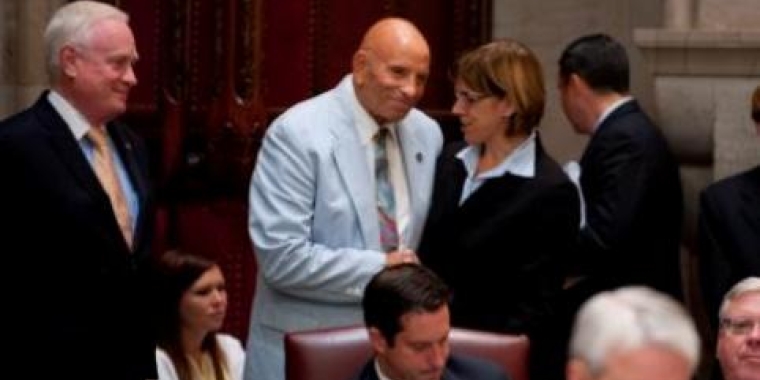
Catskill Daily Mail: Providers, lawmakers dismayed at EI ‘band-aid’

By Kyle Adams Columbia-Greene Media
CATSKILL — Early Intervention providers and lawmakers are calling for further action after they say the state’s 2014-2015 budget failed to substantially address the state’s EI billing crisis.
“The 2014-2015 state budget attempts to stop the bleeding with a ridiculously small band aid, reimbursing EI providers for three months of past-due bills dating back to April 2013,” State Senator Cecilia Tkaczyk, D-Duanesburg, wrote in a statement released Monday.
Tkaczyk and others had called for reforms in the budget to address a problem that arose from a 2011 budget measure that shifted the burden of insurance billing from county agencies to, supposedly, a state fiscal agent.
In reality, the changes have placed the burden on providers, leaving many struggling with long delays in payment and overwhelming administrative costs.
Early Intervention targets children up to age three with developmental disabilities, to correct problems early and improve their chances at success later in life.
Since the changes took effect in April 2013, many providers, many of them small operations or sole proprietors, have had to severely reduce services or close entirely.
The 2014-2015 budget includes $3.9 million to pay providers for insurance bills submitted in April, May and June of last year. Tkaczyk’s office estimates that unpaid claims since last April total between $38 and $39 million.
“This is simply not enough, and will drive more EI providers out of business,” stated Tkaczyk. “The situation is especially destructive for small agencies and sole-proprietorships that are vital for service delivery in rural parts of the state.”
Tkaczyk and other lawmakers had proposed a more extensive fix that would have required prompt payments to providers and tasked the fiscal agent, not providers, with recovering payments from insurance companies and Medicaid. The reform was included in both the senate and assembly budget proposals.
The measure included in the final budget does not include any procedural changes to the billing process or assurance of prompt payment in the future.
In a survey of 84 EI agencies in 39 counties by the Coalition of Westchester Providers Workgroup, “the vast majority of agencies report that the implementation of the new NYS statewide billing system, policies and procedures have had dramatic negative effects on children and agencies.”
More than a third of those surveyed have had payroll delays in the last year, more than two-thirds report children in their counties waiting for services, and more than half said they are planning to reduce services or close their EI programs.
Kelly Fagan, an EI provider in Greene County, has had to close her EI program to all but one child.
“I think a lot of providers were looking and hoping that the budget would have the fix in it,” she said. “It’s disappointing. We’re hoping our legislators will stand up for early intervention and go to bat for it because it’s really worthwhile and this needs to happen.”
Fagan said she knows Greene County, along with other counties, are feeling the shortage of providers. She’s been approached by at least three counties recently, she said, “basically begging providers to come back”.
Leslie Gruber, founding director of United New York Early Intervention Providers and Parents as Partners, said the payments for April, May and June may not mean much for providers.
“During that period, we had an interim fiscal agent who wasn’t acting on the billing readily, and had indicated at our August 23meeting that they were billing effective July 5 for April, May and June,” she said. “So if we really look at the language in the billing, essentially nothing was sent to insurers during that time because the interim fiscal agent didn’t send billing to the insurers until July 5.”
Some providers may see about $2,000 from the budget measure, she said, which “is nothing. It’s not going to make a dent.”
Tkaczyk, along with New York State Assemblyman Harvey Weisenberg, D-Long Island, will continue to pursue a legislative solution to the problem, according to Tkaczyk’s office. Legislation similar to the proposed budget measures has already passed both the senate and assembly health committees.
“It is imperative that the legislature take action on this measure, especially in light of the failure to address the crisis in the final state budget,” stated Tkaczyk.


